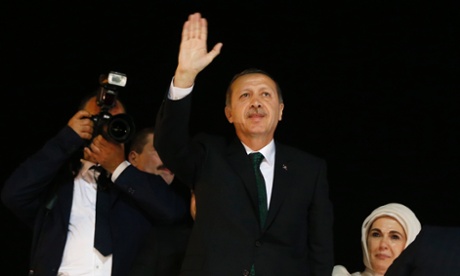Posted by John Cassidy
As I write this, a bunch of reporters are flying from Moscow to Havana on an Aeroflot Airbus 330, but Edward Snowden isn’t sitting among them. His whereabouts are unknown. He might still be in the V.I.P. lounge at Sheremetyevo International Airport. He could have left on another plane. There are even suggestions that he has taken shelter in the Ecuadorian Embassy in Moscow.
What we do know is that, on this side of the Atlantic, efforts are being stepped up to demonize Snowden, and to delegitimize his claim to be a conscientious objector to the huge electronic-spying apparatus operated by the United States and the United Kingdom. “This is an individual who is not acting, in my opinion, with noble intent,” General Keith Alexander, the head of the National Security Agency, told ABC’s “This Week” on Sunday. “What Snowden has revealed has caused irreversible and significant damage to our country and to our allies.” Over on CBS’s “Face the Nation,” Senator Dianne Feinstein, head of the Senate Intelligence Committee, said, “I don’t think this man is a whistle-blower… he could have stayed and faced the music. I don’t think running is a noble thought.”
An unnamed senior Administration official joined the Snowden-bashing chorus, telling reporters, “Mr. Snowden’s claim that he is focussed on supporting transparency, freedom of the press, and protection of individual rights and democracy is belied by the protectors he has potentially chosen: China, Russia, Cuba, Venezuela, and Ecuador. His failure to criticize these regimes suggests that his true motive throughout has been to injure the national security of the U.S., not to advance Internet freedom and free speech.”
It is easy to understand, though not to approve of, why Administration officials, who have been embarrassed by Snowden’s revelations, would seek to question his motives and exaggerate the damage he has done to national security. Feinstein, too, has been placed in a tricky spot. Tasked with overseeing the spooks and their spying operations, she appears to have done little more than nod.
More unnerving is the way in which various members of the media have failed to challenge the official line. Nobody should be surprised to see the New York Post running the headline: “ROGUES’ GALLERY: SNOWDEN JOINS LONG LIST OF NOTORIOUS, GUTLESS TRAITORS FLEEING TO RUSSIA.” But where are Snowden’s defenders? As of Monday, the editorial pages of the Times and the Washington Post, the two most influential papers in the country, hadn’t even addressed the Obama Administration’s decision to charge Snowden with two counts of violating the Espionage Act and one count of theft.
If convicted on all three counts, the former N.S.A. contract-systems administrator could face thirty years in jail. On the Sunday-morning talk shows I watched, there weren’t many voices saying that would be an excessive punishment for someone who has performed an invaluable public service. And the person who did aggressively defend Snowden’s actions, Glenn Greenwald, the Guardian blogger who was one of the reporters to break the story, found himself under attack. After suggesting that Greenwald had “aided and abetted” Snowden, David Gregory, the host of NBC’s “Meet the Press,” asked, “Why shouldn’t you, Mr. Greenwald, be charged with a crime?”
After being criticized on Twitter, Gregory said that he wasn’t taking a position on Snowden’s actions—he was merely asking a question. I’m all for journalists asking awkward questions, too. But why aren’t more of them being directed at Hayden and Feinstein and Obama, who are clearly intent on attacking the messenger?
To get a different perspective on Snowden and his disclosures, here’s a portion of an interview that ABC—the Australian Broadcasting Company, not the Disney subsidiary—did today with Thomas Drake, another former N.S.A. employee, who, in 2010, was charged with espionage for revealing details about an electronic-eavesdropping project called Trailblazer, a precursor to Operation Prism, one of the programs that Snowden documented. (The felony cases against Drake, as my colleague Jane Mayer has written, eventually collapsed, and he pleaded guilty to a misdemeanor.)
INTERVIEWER: Not everybody thinks Edward Snowden did the right thing. I presume you do…DRAKE: I consider Edward Snowden as a whistle-blower. I know some have called him a hero, some have called him a traitor. I focus on what he disclosed. I don’t focus on him as a person. He had a belief that what he was exposed to—U.S. actions in secret—were violating human rights and privacy on a very, very large scale, far beyond anything that had been admitted to date by the government. In the public interest, he made that available.
INTERVIEWER: What do you say to the argument, advanced by those with the opposite viewpoint to you, especially in the U.S. Congress and the White House, that Edward Snowden is a traitor who made a narcissistic decision that he personally had a right to decide what public information should be in the public domain?
DRAKE: That’s a government meme, a government cover—that’s a government story. The government is desperate to not deal with the actual exposures, the content of the disclosures. Because they do reveal a vast, systemic, institutionalized, industrial-scale Leviathan surveillance state that has clearly gone far beyond the original mandate to deal with terrorism—far beyond.
As far as I’m concerned, that about covers it. I wish Snowden had followed Drake’s example and remained on U.S. soil to fight the charges against him. But I can’t condemn him for seeking refuge in a country that doesn’t have an extradition treaty with the United States. If he’d stayed here, he would almost certainly be in custody, with every prospect of staying in a cell until 2043 or later. The Obama Administration doesn’t want him to come home and contribute to the national-security-versus-liberty debate that the President says is necessary. It wants to lock him up for a long time.
And for what? For telling would-be jihadis that we are monitoring their Gmail and Facebook accounts? For informing the Chinese that we eavesdrop on many of their important institutions, including their prestigious research universities? For confirming that the Brits eavesdrop on virtually anybody they feel like? Come on. Are there many people out there who didn’t already know these things?
Snowden took classified documents from his employer, which surely broke the law. But his real crime was confirming that the intelligence agencies, despite their strenuous public denials, have been accumulating vast amounts of personal data from the American public. The puzzle is why so many media commentators continue to toe the official line. About the best explanation I’ve seen came from Josh Marshall, the founder of T.P.M., who has been one of Snowden’s critics. In a post that followed the first wave of stories, Marshall wrote, “At the end of the day, for all its faults, the U.S. military is the armed force of a political community I identify with and a government I support. I’m not a bystander to it. I’m implicated in what it does and I feel I have a responsibility and a right to a say, albeit just a minuscule one, in what it does.”
I suspect that many Washington journalists, especially the types who go on Sunday talk shows, feel the way Marshall does, but perhaps don’t have his level of self-awareness. It’s not just a matter of defending the Obama Administration, although there’s probably a bit of that. It’s something deeper, which has to do with attitudes toward authority. Proud of their craft and good at what they do, successful journalists like to think of themselves as fiercely independent. But, at the same time, they are part of the media and political establishment that stands accused of ignoring, or failing to pick up on, an intelligence outrage that’s been going on for years. It’s not surprising that some of them share Marshall’s view of Snowden as “some young guy I’ve never heard of before who espouses a political philosophy I don’t agree with and is now seeking refuge abroad for breaking the law.”
Mea culpa. Having spent almost eighteen years at The New Yorker, I’m arguably just as much a part of the media establishment as David Gregory and his guests. In this case, though, I’m with Snowden—not only for the reasons that Drake enumerated but also because of an old-fashioned and maybe naïve inkling that journalists are meant to stick up for the underdog and irritate the powerful. On its side, the Obama Administration has the courts, the intelligence services, Congress, the diplomatic service, much of the media, and most of the American public. Snowden’s got Greenwald, a woman from Wikileaks, and a dodgy travel document from Ecuador. Which side are you on?
Demonizing Edward Snowden: Which Side Are You On? : The New Yorker









 Google Maps operators on Mount Everest (GOOGLE)
Google Maps operators on Mount Everest (GOOGLE) An operator collects images using a Street View Trekker (GOOGLE)
An operator collects images using a Street View Trekker (GOOGLE) 






